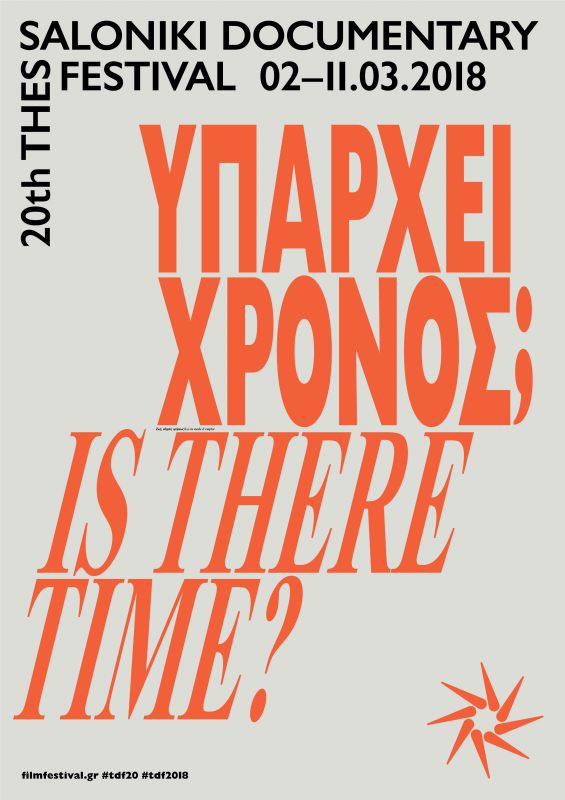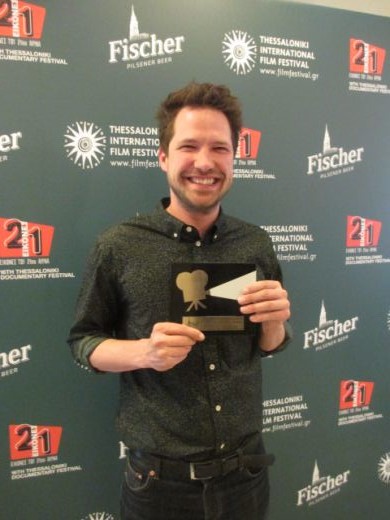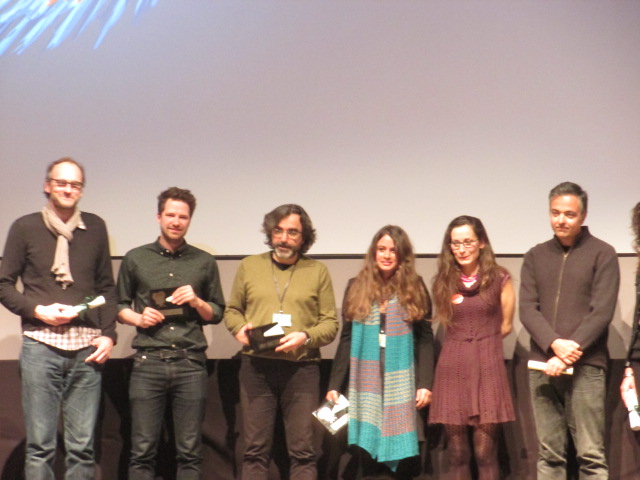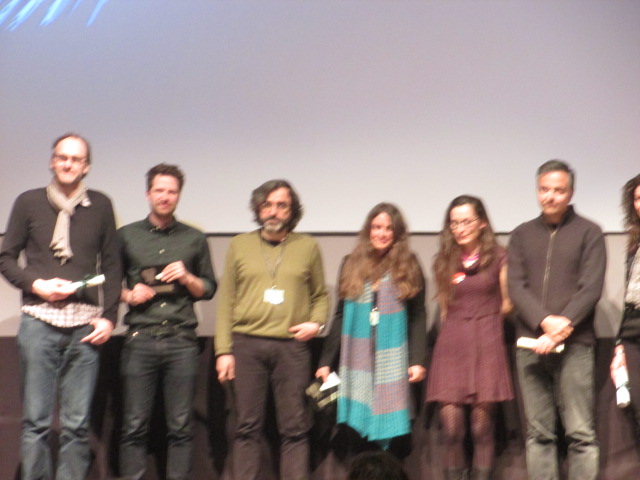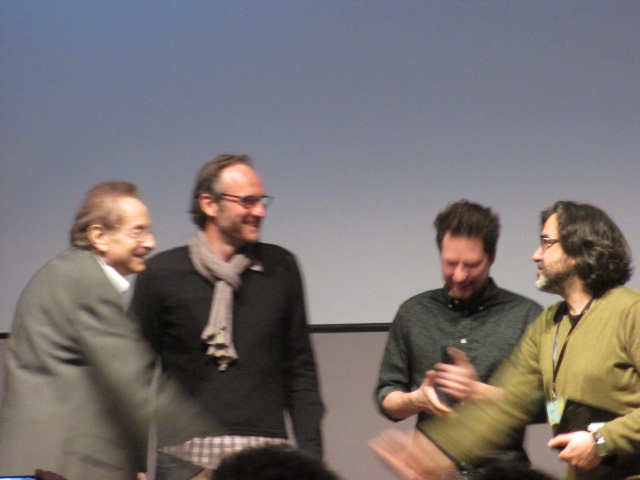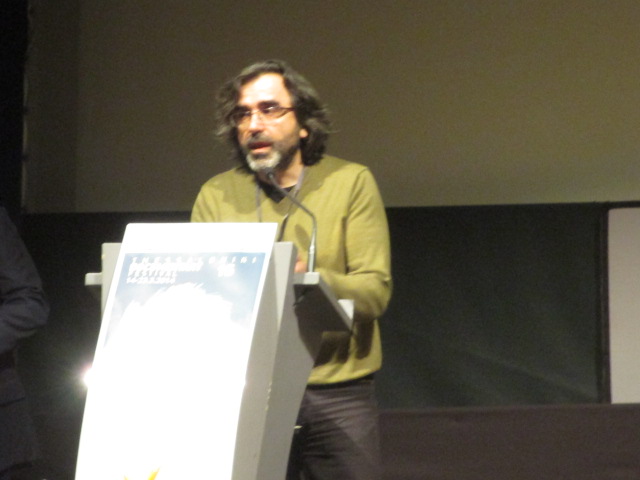|
|
||
|
Pro Tools
FILMFESTIVALS | 24/7 world wide coverageWelcome ! Enjoy the best of both worlds: Film & Festival News, exploring the best of the film festivals community. Launched in 1995, relentlessly connecting films to festivals, documenting and promoting festivals worldwide. Working on an upgrade soon. For collaboration, editorial contributions, or publicity, please send us an email here. User login |
14th TDF Press Conference, March 11th, 2012
Photo still from DESERT RIDERS (2011) -14th TDF PRESS-
PRESS CONFERENCE As part of the 14th Thessaloniki Documentary Festival, a Press Conference was held on Sunday, March 11, 2012. Participating were directors Natalie Johanna Halla (Gaelle) and Daan Veldhuizen (Stories from Lakka Beach), as well as the scriptwriter/producer Noemi Weis (Desert Riders). Desert Riders, directed by Vic Sarin, deals with a topic that is not much known to us, yet is a commonality in the Arab world: thousands of children, some of them only two years old, become victims of trafficking, ultimately ending up as jockeys in camel races: they are systematically underfed, abused and injected with hormones that stunt growth. Discussing the causes of this phenomenon, Weis stressed that “the reasons vary. Oftentimes, the poverty of the families of these children makes them send them to the training camps in the hopes that they will lead a better life there. On the other hand, there are traffickers who take advantage of that as a business opportunity. Horse races are have huge revenues, so why not camel races? And it’s true; millions of dollars have been made like this. International organizations also share this responsibility, as they have not dealt with this issue at all”. The documentary gives voice to the children and their parents, but also includes interviews from the traffickers themselves, as well as representatives of the governments from the countries where the races take place, leaving ample room for the viewer to decide where responsibility lies. After the Western media discovered the issue and made it public, 3000 children returned to their homes, but many more are still missing, possibly still working in the races. “A positive outcome is that the races have been banned because of their exposure; sometimes films and the mass media can lead to change. If we band together and make such things known, then we can bring about some change”, stressed Ms Weis. Concerning her personal experience from producing the film, she said that researching it was the hardest job she had ever done, due to the fact that being a Western woman in these countries made everything even more difficult. In Mauritania she was under house arrest for months, was not allowed to go outside unless she was accompanied by a man and was interrogated several times to justify her presence in the country. In addition, she was not allowed to enter Saudi Arabia, and could not travel to Sudan due to the civil war that broke out during the making of the film. Daan Veldhuizen, director of Stories from Lakka Beach, which takes place in a small Sierra Leone seaside community, discussed why he decided to make the particular film. He had visited the country in 2006 to teach a program about environmentally-focused documentaries and became acquainted with the everyday life of its residents. “The truth is that the majority of the documentaries about Africa that I had seen up to that point dealt with AIDS, poverty and corruption; but there is another side to the continent, full of vitality, humor and beauty. The Sierra Leone civil war has been traumatizing to its population, but the country has moved on, despite the fact that the rest of the world mostly associates it with the horrific images from the war”, said the director. “I wanted to narrate the stories of the locals in the way that I experienced them: they might struggle to make a living, but this fact does not control their lives, which is the stereotype we have for them. I wanted to reveal how they live through simple stories, like the one of a hard-working farmer who does everything so his daughter can attend university. I was looking for a fair balance between the situation today and the remnants of the war”. Veldhuizen added that the stories from Lakka beach will be continued online, with more information about the characters’ lives. He is considering making a second film about them and how their lives have evolved, this time emphasizing climatic and environmental changes, urbanization and the decimation of wood areas. Gaelle was initially conceived as the story of the rescue of two-year-old Redjeson from a collapsed building in Haiti after the earthquake, as well as the story of Turco, the trained dog that was part of the operation conducted by a team of Spanish firefighters. Director Natalie Johanna Halla, however, said that “while I was shooting, I realized that the experience in Haiti was extremely traumatic for the firefighters, as they did rescue Redjeson, but were forced to leave a young girl, Gaelle, to die minutes before her rescue, as the army made them evacuate the location for security reasons”. Halla convinced them to return to Haiti after one year, in order to visit Redjeson, but also the spot where they were forced to leave Gaelle. “I had made it clear from the beginning that I do not want to make a sensationalist film, or make them look like heroes in a superficial way, but I wanted to chronicle their emotional journeys and find out what happened to both Redjeson and Gaelle. We returned and the conditions there were not as they should have been: foreign aid hadn’t been actualized, the country hadn’t recovered…we succeeded in finding Redjeson, however, which was an important experience for the firefighters”, said Ms Halla. The films belong to sections that are funded, amongst other 14th TDF activities, by the European Union - European Regional Development Fund under the Central Macedonia ROP 2007-2013. --14th TDF PRESS RELEASE- 16.03.2012 | Thessaloniki's blog Cat. : 14th TDF Press Conference 2012 Africa army Camel CDATA Central Macedonia Daan Veldhuizen Director European Regional Development Fund European Union farmer Gaelle Adisson Haiti Halla Lakka March 11th Mauritania Natalie Johanna Halla (Gaelle) Natural Disaster Noemi Weis Person Attributes Person Career Person Travel Quotation Redjeson Saudi Arabia scriptwriter /producer Sierra Leone Social Issues Social Issues Stories Sudan Technology Technology The 14th Thessaloniki Documentary Festival Tour de France Vic Sarin News
|
LinksThe Bulletin Board > The Bulletin Board Blog Following News Interview with EFM (Berlin) Director
Interview with IFTA Chairman (AFM)
Interview with Cannes Marche du Film Director
Filmfestivals.com dailies live coverage from > Live from India
Useful links for the indies: > Big files transfer
+ SUBSCRIBE to the weekly Newsletter Deals+ Special offers and discounts from filmfestivals.com Selected fun offers
> Bonus Casino
User imagesAbout Thessaloniki Mcmahon Vanessa Mcmahon Vanessa Vanessa McMahon Covered the 13th and 14th, and 16th edition. Through its tributes, it focuses both on discovering filmmakers with a unique cinematic point of view, and on the internationally recognized for their contribution to documentary. Contributions from Buno Chatelin http://tdf.filmfestival.gr/default.aspx?lang=en-US&loc=6&page=760 View my profile Send me a message My festivalThe EditorUser contributions |



















